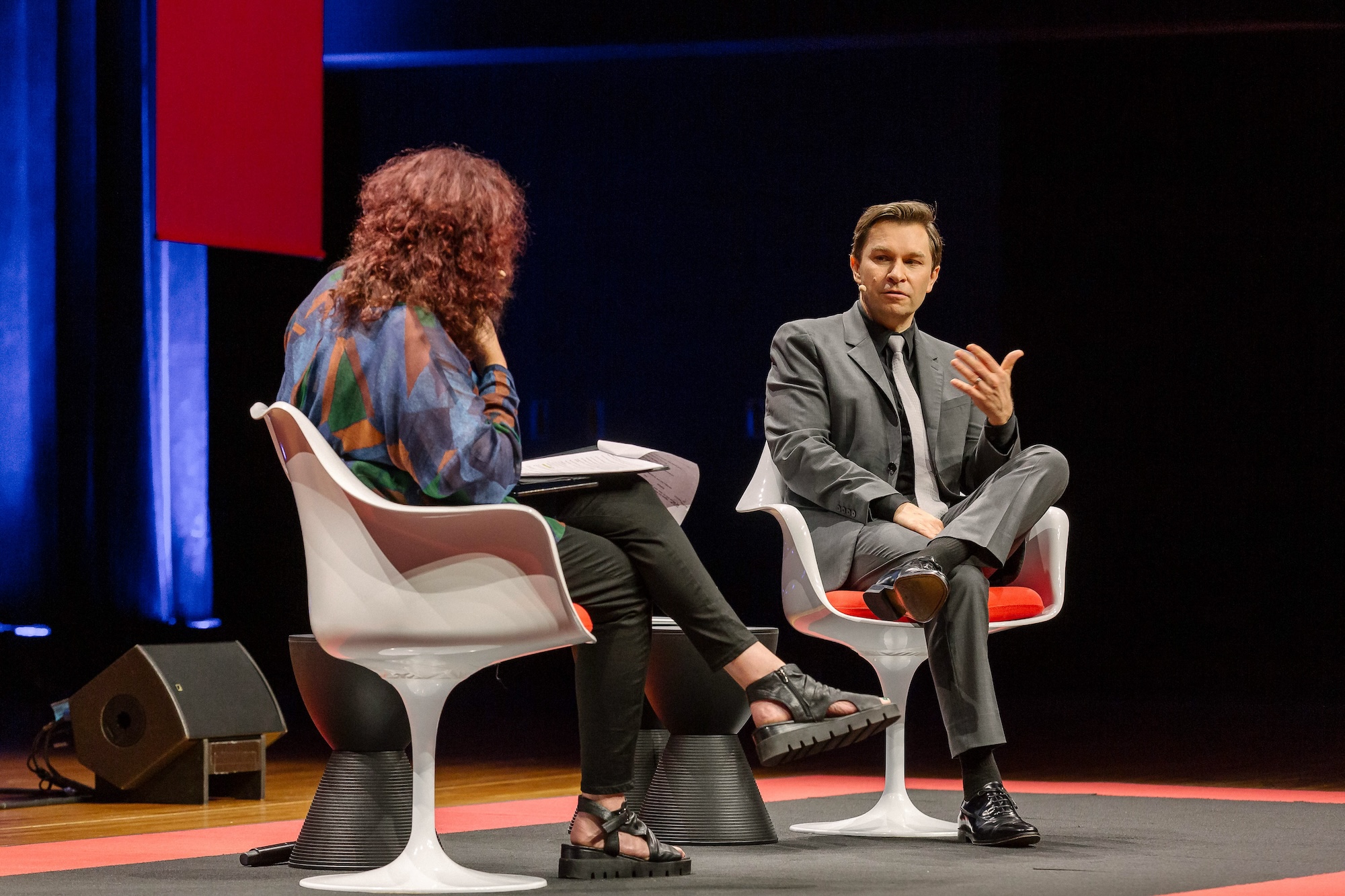Professor David Sinclair is on a mission to ‘cure’ the world of aging

Professor David Sinclair, AO, PhD, is the leading genetics researcher at Harvard Medical School with 50 patents to his name, and heads-up a world-leading lab where his progress on slowing and reversing aging is changing the game.
Speaking at World Science Festival Brisbane in a special recording of ABC Radio National’s Big Ideas program, hosted by Natasha Mitchell, Professor Sinclair believes we can live healthier, happier, and much longer lives up to 150 years old – and avoid many diseases that are associated with aging.
“If we look at aging as a process that can be treated, we have a chance for the first time in human history of slowing and even curing, not just one disease in the body, but potentially most major diseases on the planet,” Professor Sinclair said.
A breakthrough begins with yeast
His first significant discovery was decades ago while undertaking his PhD on yeast, and researching why yeast cells don’t live forever. It became central to his path to researching longevity and aging.
Sinclair discovered that yeast has a Silent Information Regulator 2 gene (SIR2) that controlled other genes.
“When you have more of it (SIR2) in a yeast cell, they live 30 percent longer,” he explains.
“What we figured out was that this gene was protecting the cell during times of adversity – and that was a real breakthrough. And then we connected that to gene regulation as a cause of aging itself.”
Humans also have ‘Sirtuin’ genes (what SIR2 is now called), which are key to our health, with variants in the genes predisposing humans to either a long healthy life, or susceptible to certain diseases.
“The good news is we figured out the way you live your life can greatly impact how active those genes are, and counteract their natural decline in activity over time,” Professor Sinclair says.
Sirtuin genes need a molecule called NAD to work – it’s part of the chemical reaction to control the genes. NAD naturally declines in our bodies over time – 50 year old people have significantly less NAD than 20 year olds.
Exercise, diet changes and other lifestyle choices can naturally raise NAD levels.
Regenerating nerves and reversing aging
Professor Sinclair and his talented laboratory team have also published medical journals describing successful experiments to cure blindness in mice by regrowing optic nerves that had died off in an adult mouse.
Usually only young mammals can re-grow nerves, not older mammals.
“We’re reversing aging. I have no trouble saying that, and it’s all based on data,” Professor Sinclair says.
“We extracted the proteins and the DNA, and there’s a very clear way to know if the cells are younger or not.
“It’s mathematically provable if a cell is younger, or older than it was, and so we did that experiment, and the clock said that it was much younger.”
This experiment has led Professor Sinclair to believe and try to prove that our cells have a ‘back-up’ copy, and aging is simply a loss of information that needs to be restored.
“We like to work on holy grails in my lab. The holy grail for us right now is trying to find the back-up copy,” he says.
“So where is that information? Is it on the DNA? Is it the packaging proteins? Is it something brand new? We think so – and in the next couple of years, we’ll know so.”
To listen to David Sinclair’s full conversation on ABC Radio National’s Big Ideas program hosted by Natasha Mitchell, click here.